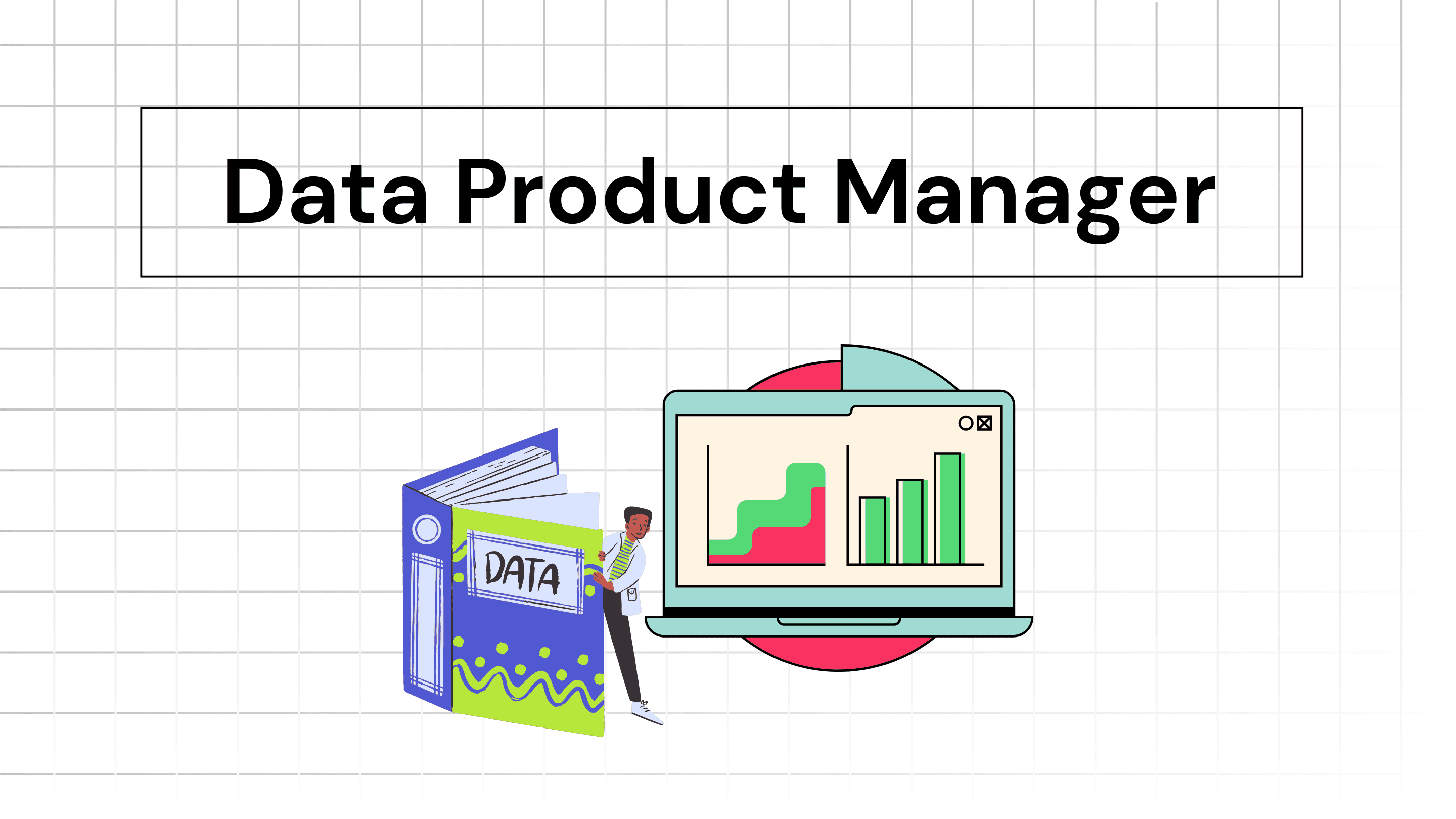
Iterate AI
Dec 13, 2024
As a product manager (PM), you will notice that your roles overlap with UX designers, engineers, or growth marketers. Similarly, with the rise of data-driven decision-making, a specialized role is now in the mix: the Data Product Manager (DPM).
This blog dives into the role of a Data Product Manager, their unique responsibilities, and how product managers can transition into data product managers.
Who Is a Data Product Manager?
At its core, a Data Product Manager builds, manages, and optimizes data products.
So what’s a data product?
A "data product" can range from internal tools like recommendation algorithms and dashboards to customer-facing features like search engines or fraud detection systems. DPMs manage the development of products that primarily deal with data as the input and output.
For example, think of Spotify's Discover Weekly playlist. There’s complex data pipelines and machine learning models behind this feature to create a playlist (Output) based on the user’s choice of music and artists (Input).
A Data Product Manager would work with data scientists, engineers, and other stakeholders to ensure the recommendation algorithm aligns with the user's needs and likings.
Key Responsibilities of a Data Product Manager - What Do They Do?
Here’s what they do typically:
Defining the vision for data products 👁
Much like traditional PMs, DPMs start by defining a vision—but their focus is on data. They ask questions like:
What user or business problems can be solved with data?
How can we leverage existing data assets to create value?
Here's an example:
Vision: Build a recommendation engine that increases cart size by 15% within a year at an e-commerce company.
They can do it using historical purchase and browsing data.
Collaborating with data teams 🤝
DPMs collaborate with data engineers, and analysts to implement their vision and bring data products to life for their users. They ensure their business requirements are met with the help of data and they also make it scalable.
This collaboration requires fluency in data pipelines, machine learning lifecycle, data governance and data privacy.
Setting up analytics, ensuring data quality and measuring impact 📈
A DPM is responsible for ensuring the data is accurate, clean, and accessible. Data products are often invisible to end-users so measuring their success requires specific metrics. A DPM might track:
Precision and recall for a recommendation engine.
Latency for a real-time fraud detection system.
ROI on the cost of building and maintaining a data pipeline.
For instance, a DPM working on a churn prediction model will monitor how accurately the model predicts at-risk users and whether targeted interventions reduce churn rates.
💡Why PMs and DPMs need to know Iterate AI
To set up analytics, you don't have to depend on developers anymore! With Iterate AI, PMs and DPMs can set up analytics by just clicking on items to create events and generate code. Your devs only need to review for you to implement. Schedule a demo to see how it works!
How Product Managers Can Transition to Data Product Management
Here’s how to make the switch:
Have a solid foundation in data concepts. Resources like online courses, blogs, and tutorials on SQL, Python, and machine learning can help. Try writing basic SQL queries to analyze datasets.
Take on side projects or collaborate with data teams in your current role. For instance, partner with analysts to design dashboards that measure key product metrics.
Familiarize yourself with tools commonly used by data teams, such as:
Jupyter Notebooks for exploratory data analysis.
Data visualization tools like Tableau or Looker.
Big data platforms such as Spark or Hadoop (depending on your industry).
Reach out to Data Product Managers within your organization or domain. Understanding their day-to-day challenges and responsibilities to get clarity on the role and valuable mentorship.
Why the data product manager role is attractive?
Here are three reasons why there's noise around this role:
With the explosion of data and advancements in AI/ML, the demand for DPMs is increasing with new product being created around it. across sectors. Whether it’s fintech, e-commerce, healthcare, or entertainment, organizations need experts who can bridge the gap between data science and business objectives.
DPMs lead initiatives involving the latest technologies, such as machine learning, big data analytics, and AI making them highly sought after with competitive salaries.
With their expertise in data and strategy, DPMs can pivot into roles such as Chief Data Officer (CDO), AI Product Manager and more
Tips for Collaborating with Data Product Managers
Here some basic tips to remember:
Develop an understanding of data concepts
You don’t need to be a data engineer, but familiarity with SQL, A/B testing, and machine learning basics can help you.
Clarify ownership
Data projects often involve multiple stakeholders. Clearly define who owns what to avoid confusion. For example, the DPM might own the recommendation algorithm, while you own the user-facing UI.
Have specific and defined KPIs
Define success metrics collaboratively. For instance, if you're building a search feature, you might care about user engagement, while the DPM focuses on search result accuracy.
Stay user-centric
While DPMs handle the technical aspects of data, your expertise as a PM in user empathy and design thinking is invaluable. Advocate for how data products serve the end user, not just the system.
